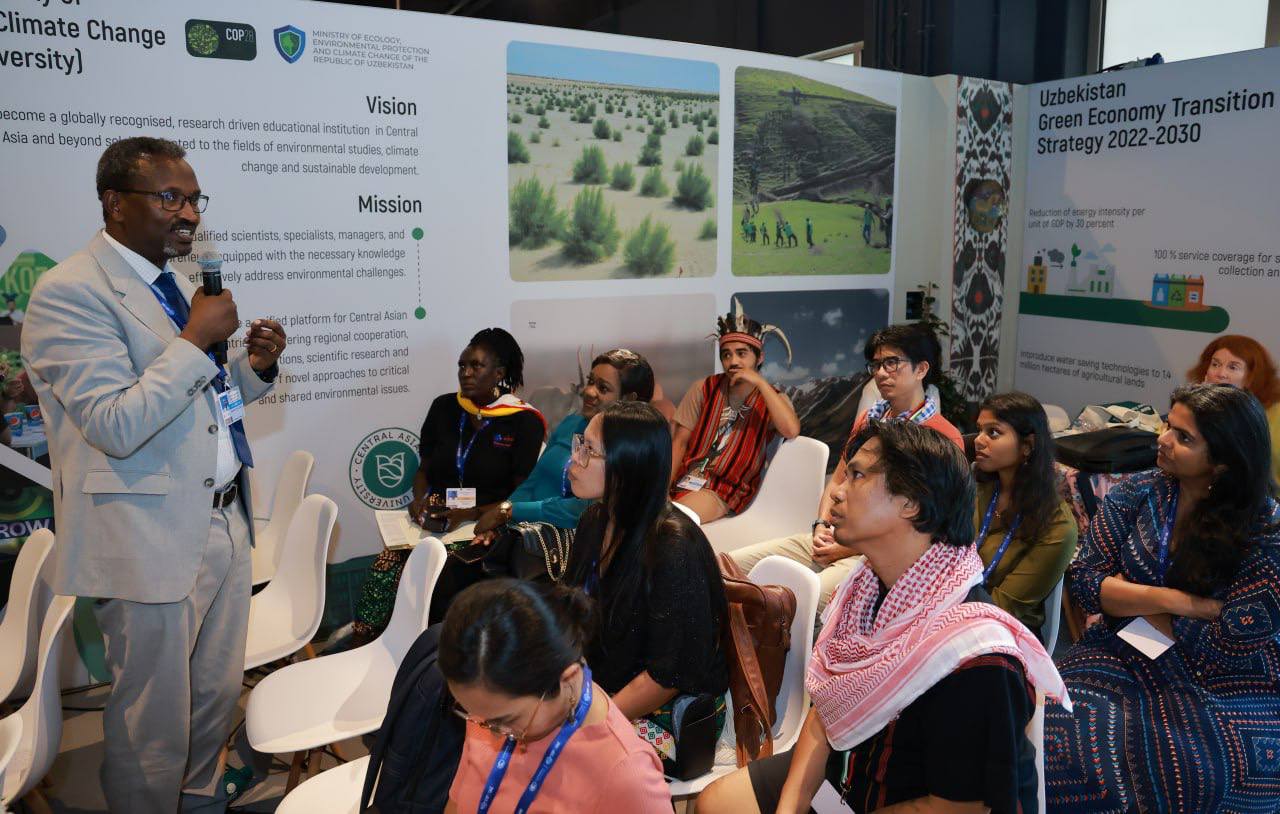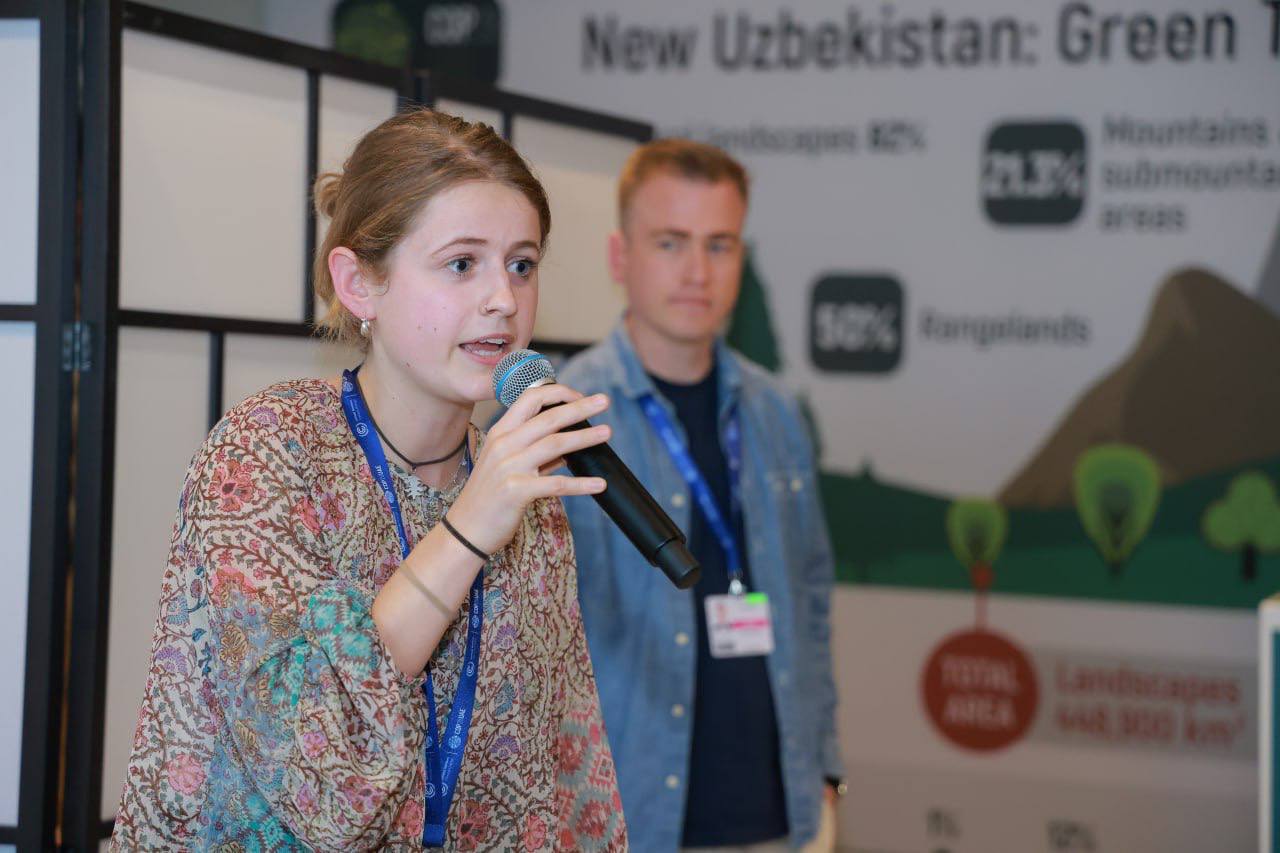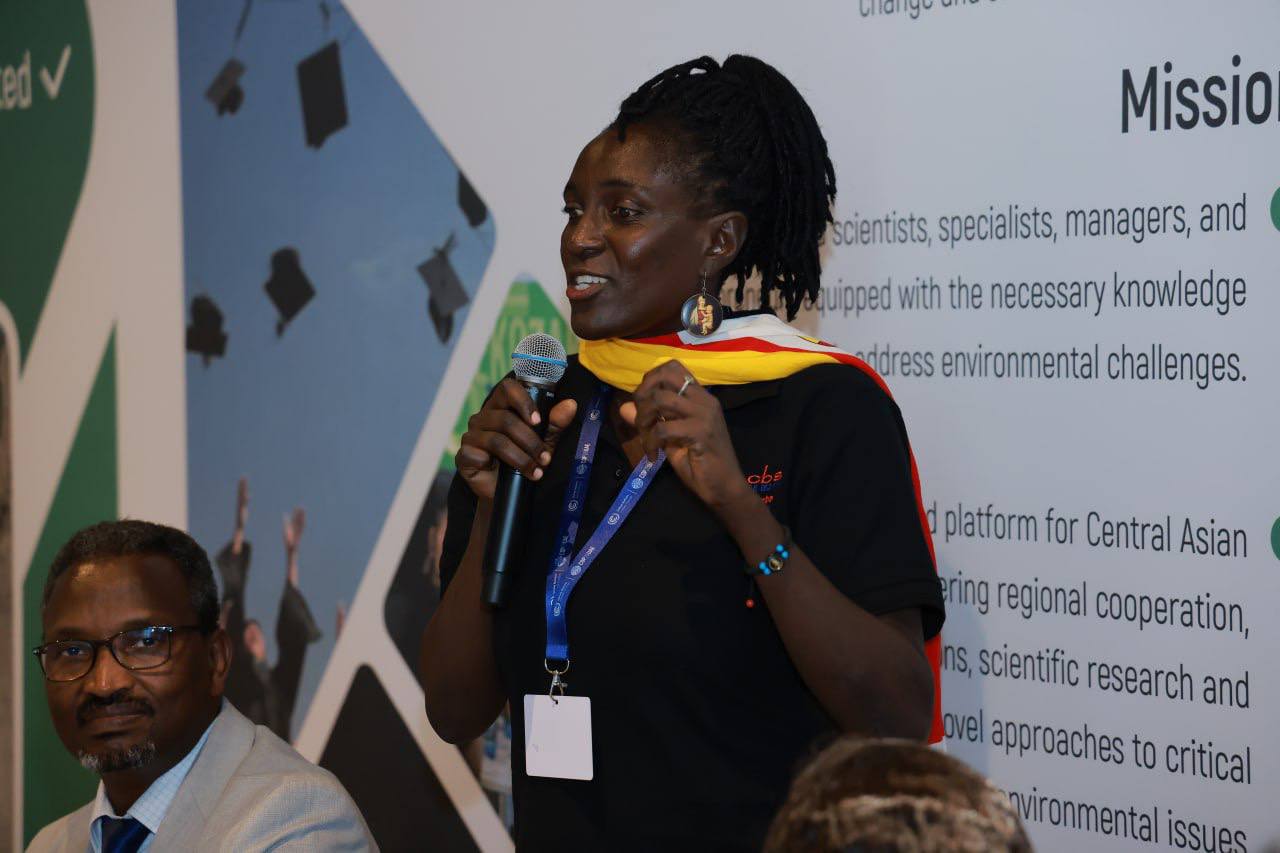
As part of the 28th United Nations Climate Change Conference (COP28) took place on 5 December at the Uzbekistan Pavilion in Dubai, UAE, a panel session titled "Ethnoecology: traditional practices and indigenous knowledge in our battle with climate change».
The event was attended by the Minister of Ecology, Environmental Protection, and Climate Change of the Republic of Uzbekistan, Aziz Abdukhakimov, the Director of the United Nations Forum on Forests Juliette Biao Koudenoukpo (UNFF), representatives from the Central Asian University for Environmental Studies and Climate Change Central Asian Green University, diplomatic corps, and international organizations.
The aim of the event was to promote interdisciplinary research on culture, environment, and ecology, discuss the benefits and risks of research involving local communities and their traditional knowledge systems, and gather international experience and recommendations for establishing the Ethnoecological Research Center at the Central Asian University for Environmental Studies and Climate Change Central Asian Green University.
During the session, the vital importance of Ethnoecological approaches for locally adaptive sustainable development and inclusive conservation practices was discussed. The role of ethnoecology in mitigating and adapting to climate change was emphasized. Topics such as traditional varieties of agricultural crops and cultivation methods, food security, adaptive architecture to local conditions, and rangeland management were also discussed.
It is worth noting that Central Asia’s (CA) diverse landscapes, from mountains to deserts, foster a rich array of flora and fauna that hold profound historical connections with human traditions, serving various purposes like sustenance, medicine, and cultural adornment. Unfortunately, Uzbekistan's biodiversity faces multiple threats, including habitat loss, climate change, pollution, and the indirect impacts of urbanisation and globalisation. Though direct causes are not certain, biological and cultural diversity correlate across global spatio-temporal context, and declines in one are linked to declines in the other. The intricate correlation between biological and cultural diversity calls for a holistic conservation approach integrating local communities, traditional knowledge, and interdisciplinary research.
Despite their significance, local ecological knowledge (LEK) and traditional ecological knowledge (TEK) are often disregarded inconversations about conservation or sustainable development, primarily due to the undervaluation of traditional knowledge and limited collaboration between ecologists and anthropologists. Ethnoecology, converging at the intersections of anthropology, linguistics, biology, and politics, bridges these gaps and facilitates interdisciplinary research focusing on the dynamic role of people and TEK in preserving ecosystem integrity.
During the session, the future "Ethnoecological Research Center of Uzbekistan" was presented, which will initiate interdisciplinary research and equal collaboration with local communities in Central Asia, with the expectation of protecting the environment, expanding cultural heritage, and promoting sustainable development.


Throughout the session, specialists and experts in the field exchanged traditional knowledge of local practices, as well as advanced experiences in the effective and ethical use of acquired knowledge.











